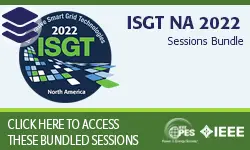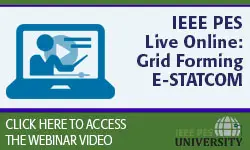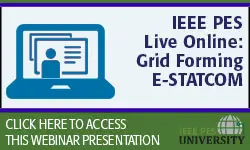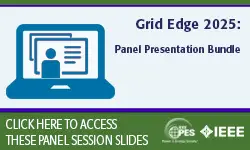Plenary: Offshore Wind Integration: DOE Perspectives and European Lessons Learned and Best Experiences (slides)
L. He, E. Starschich
-
Members: FreePES
IEEE Members: $10.00
Non-members: $20.00Pages/Slides: 25
Plenary
26 Apr 2022
To accelerate grid decarbonization, many countries have issued strong incentives to significantly increase the installation of renewable energy resources, including offshore wind. The United States (U.S.) government has set an ambitious target to install offshore wind generators of 30 gigawatts (GW) by 2030. It is shown in existing studies that voltage source converter-based high voltage direct current (VSC-HVDC) is considered as the most effective solution for large-scale, long-distance offshore wind power transmission due to its advantages of fast and independent control of active and reactive power, feasibility of multi-terminal dc grids, and black start capability. The rapid growth of offshore wind power can significantly impact the stability and resilience of onshore ac grids. This poses great challenges to the modeling, control, protection, operation, and security of VSC-HVDC connected offshore wind generators. This panel will share DOE perspectives on offshore wind integration and European lessons learned and best experiences to provide good guidance to speed up the development of U.S. offshore wind technologies.
Presentations and Panelists:
- “Challenges and Solutions of Offshore Wind Integration” by L. He, University of Illinois Chicago
- “Dynamic Performance of Offshore connections with HVDC in the AC grid” by E. Starschich, Siemens Energy
Presentations and Panelists:
- “Challenges and Solutions of Offshore Wind Integration” by L. He, University of Illinois Chicago
- “Dynamic Performance of Offshore connections with HVDC in the AC grid” by E. Starschich, Siemens Energy
Chairs:
Lina He



